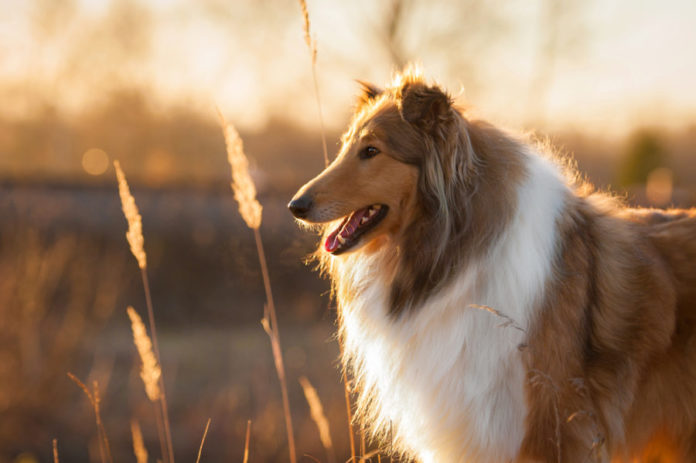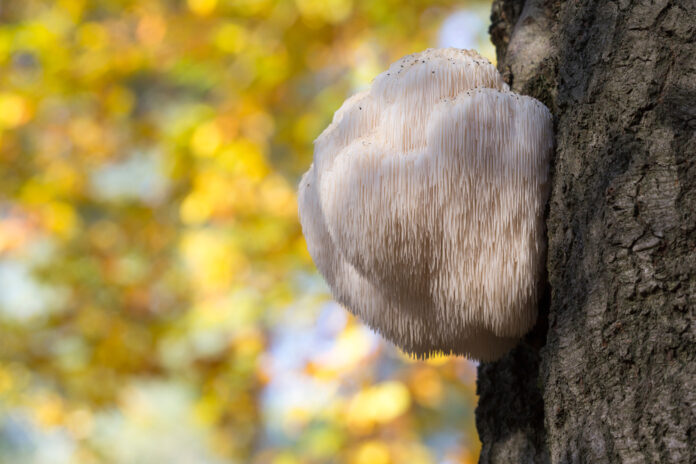Feeding your dog for healthy skin and a glossy coat

Poor nutrition or a deficiency in certain nutrients can manifest as dandruff, itchiness, dull hair and other problems. A high quality diet with the right supplements can do wonders for his skin and coat health.
When it comes to dogs, the old adage that you are what you eat rings true. A dog with a beautiful coat and healthy skin is not only a sight to behold, but is also enjoying optimal well-being. It’s important to know that there’s no “one size fits all” formula as to what types of food and supplements can help enhance your dog’s skin and coat health. In fact, it can often take some time and experimentation to find the ideal combination for your canine companion. But this article will get you started on the right foot.
Skin and hair basics
Skin is the largest organ system in the body. It’s also multi-functional; it’s an environmental barrier, regulates temperature, plays a role in the immune system, provides mechanical support to the body, and acts as a neurosensory receptor. To have a shiny coat, your dog needs healthy skin.
Hair originates in the hair follicles, which are downward extensions of the epidermis. Each hair has 50 to 100 different keratin proteins. The hair cortex contains a pigment called melanin that gives hair its color.
Start with a high quality food
The first step to achieving a coat that glistens and skin that is smooth and supple is choosing a high quality pet food. Select foods with ingredients sourced from trusted partners located as close as possible to the manufacturing facility; this ensures freshness. Whole food ingredients, like fresh meats, fruits and vegetables, provide the essential nutrients, antioxidants and plant-based nutrients needed to support optimal skin and coat health.
Essential nutrients for skin and coat health
Fats
Dietary fat assists in the absorption of fat-soluble vitamins and is necessary for the normal functioning of body cells, nerves and muscles. Fat is vital in the skin and creates a water barrier. Fats are made up of building blocks called fatty acids, which are divided into monounsaturated, polyunsaturated and saturated fatty acids based on their chemical structure.
Certain fatty acids are required in a dog’s diet because his body cannot make them. These are called essential fatty acids (EFAs) and include Omega-3 and Omega-6 polyunsaturated fatty acids. EFAs play important roles in cell membranes, the immune system, and the circulatory system. In other words, they are essential for life.
For most healthy dogs, a diet that provides about 12% to 18% fat on a dry matter basis is best for health and maintenance. Including both Omega-3 and Omega-6 fatty acids in your pet’s diet is important because they’re metabolized in the body into substances that affect inflammation.
Linoleic acid is the key Omega-6 EFA for dogs. It is found in most fats and oils, including chicken fat and canola oil. Salmon oil is a source of Omega-3 eicosapentaenoic acid (EPA) and docosahexaenoic acid (DHA), while canola oil and flaxseed are sources of Omega-3 alpha-linolenic acid (ALA). Omega-3s are considered less inflammatory than Omega-6s and may help dogs with irritated and inflamed skin.
Most fats and oils are higher in Omega-6s than Omega-3s, but it is important for dogs to receive a balance of both. The role of these fatty acids in maintaining health is affected by the ratio of Omega-3 to Omega-6, but also the total amount of each in the diet. The National Research Council (NRC) recommends a ratio of 2.6:1 to 26:1 Omega-6 to Omega-3. The Association of American Feed Control Officials dog nutrient profiles include a maximum Omega-6 to Omega-3 ratio of 30:1.
Protein and amino acids
Hair is made mostly of protein, so adequate dietary protein is vital to ensuring a healthy coat. Proteins are the building blocks of your dog’s body and consist of chains of amino acids joined together. Dogs require 22 amino acids; 12 can be made by the body (these are non-essential amino acids), but dogs must get the remaining ten from food because their bodies cannot make them (essential amino acids).
Complete and balanced pet foods must contain all the essential amino acids in amounts that meet the requirements for dogs. Protein and essential amino acid requirements can be met by animal protein sources, complementary plant protein sources, or a combination of both. Good sources of protein commonly used in pet foods fall into three main categories: named meals (e.g. chicken meal, lamb meal), fresh meat/fish/poultry (e.g. de-boned turkey, de-boned venison) and plant-based protein (e.g. pea protein, corn gluten meal).
Zinc
Dietary zinc is needed for the maintenance of skin integrity, and also has several other functions in the body. Since skin is a rapidly reproducing tissue, it has a high demand for this mineral. Zinc deficiency is quickly seen in skin and coat quality. Some breeds of dog suffer from zinc-related dermatoses and require increased levels of this mineral compared to other breeds.
Dietary zinc is needed for the maintenance of skin integrity.
Biotin
Biotin is an often forgotten vitamin when it comes to skin and coat health. However, it is vital in supporting hair quality, skin health and nail integrity. Poor bioavailability of biotin or insufficient intake can lead to signs of poor skin health and coat condition. Supplementation with biotin can result in significant coat improvement, indicated by improved shine, smoothness and less dandruff. Both biotin and zinc help improve hair structure and reduce brittleness.
Supplementation with biotin can result in significant coat improvement, indicated by improved shine, smoothness, and less dandruff.
Vitamin A
Vitamin A is also essential for normal cell maintenance and keratin formation. Both deficient or excess levels of vitamin A can cause skin lesions, hair loss, poor coat condition, scaling skin, a thickening epidermis, dandruff and increased susceptibility to skin conditions.
Vitamins E and C
Vitamins E and C act as antioxidants and play important roles in maintaining skin smoothness and functionality. Vitamin E helps maintain the stability of cell membranes. Vitamin C is needed for tissue growth and repair, and supports collagen synthesis.
Copper
Copper is involved in the production of pigments the color the hair. So one sign of copper deficiency is loss of pigment in the dog’s coat.
Adverse reactions to food often appear in the skin and coat
Your dog’s skin and coat may provide one of the first indications that he is experiencing an adverse reaction to his food. Itchy skin, a dull coat and paw licking, as well as chronic vomiting or diarrhea are all possible signs of a food sensitivity.
Both food allergies and food intolerances can cause adverse reactions. Food allergies occur when the immune system reacts inappropriately to a food. Food intolerances are more common in dog and occur without immune system involvement. Normally, it is a reaction to a protein that causes the symptoms.
Adverse food reactions seem to be on the rise among dogs. Limited-ingredient diets with novel protein and carbohydrate sources, hydrolyzed protein diets, and home-cooked elimination diets can all be helpful.
With a little research, effort, trial and error, along with choosing a high quality diet that includes all essential nutrients, most dogs can achieve a healthy skin and glossy coat that exudes good health.



